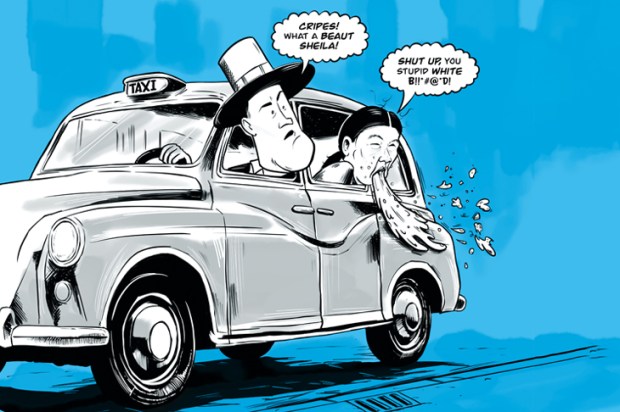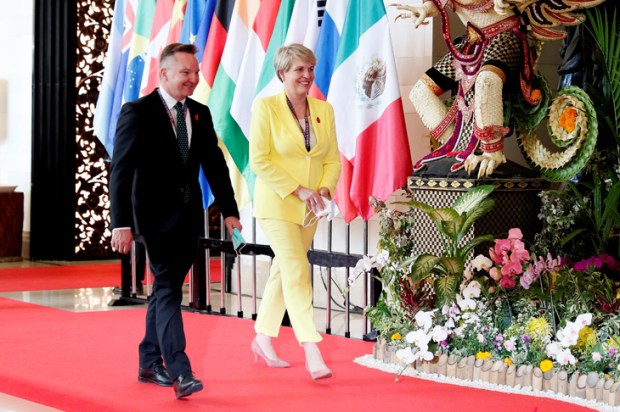In Francis Ford Coppola’s 1974 cult movie The Conversation, Gene Hackman’s character Harry Caul becomes obsessed analyzing the precise meaning of fragments of a conversation he has scrupulously recorded from a variety of sources. By splicing together disconnected words and phrases, removing irritating background noise, and forensically poring over even the slightest inflection for precise meaning, the protagonist of the film ends up tragically misinterpreting what he has heard.
Joe Hockey should take heed. His request, upon the launch of his long-awaited Tax White Paper (fashionably subtitled ‘Re:think’) that the nation engage in a ‘conversation’ about our taxation system is fraught with perils. As Harry Caul discovered, just because you hear the words it doesn’t necessarily mean you should slavishly follow them.
A surveillance team listening in on our national tax conversation thus far would find the most common phrases revolve (or should that be ‘re:volve’?) around the words ‘fair’ and ‘fairness’. Fair this, fair that, not fair enough etc. Indeed, in today’s political climate, fairness is the benchmark by which all revenue-raising and cost-cutting measures are, wrongly, judged.
As perceptive Parliamentary Secretary to the Treasurer Kelly O’Dwyer said earlier this year, ‘…fairness is being hijacked as a one-word slogan by Labor and the Greens to encapsulate a very narrow concept. Their aim is to set a Boolean test – whether a budget measure takes more from those with higher incomes than they enjoyed prior to the budget and/or gives more to those with lower incomes than they enjoyed prior to the budget.’
Ditto taxation. When the national tax conversation is framed primarily in terms of ‘fairness’, what should be the key roles of a sensible taxation system – to encourage investment, to dissuade individuals from pursuing welfare and to reward initiative and enterprise – quickly disappear from front and centre of the debate.
For those on the left, the tax ‘pie’ is just that – a tasty temptation sitting on a Canberra cake-plate that needs to be carved up to ensure everybody gets their ‘fair’ share. Indeed, nothing appeals more to progressives than one of their beloved power point pressos with a huge pie chart showing exactly that – who gets how big a slice. Thus, concessions and incentives designed to encourage savings, reward thrift, stimulate industry, attract foreign investment, encourage start-ups and growth, build retirement savings and encourage individuals to fend for themselves are merely ‘loopholes’ through which those iniquitous ‘wealthy’ people horde undeserved loot.
Attempts by those who pay the overwhelming amount of tax in this country to explain that the pie needs to be grown before it can effectively be divvied up largely fall on deaf ears.
The voices that need to be contributing most vociferously to this ‘conversation’ – those of enterprise and industry – are largely lost in the background noise. (As with discussions on spending cuts, the business community have been conspicuously quiet.)
The biggest problem, however, is the lack of a clear narrative from the Coalition into which this diverse conversation can be spliced. The Prime Minister launched the Tax White Paper with words along the lines of ‘well, we shall see where this conversation takes us.’ That is not good enough.
The government needs to be on the front foot, clearly explaining that a healthy taxation system helps improve the economy by stimulating initiative and investment which in turn is of benefit to all those capable of contributing to, rather than just relying upon, a slice of the tax pie. The rest is just chatter.
Got something to add? Join the discussion and comment below.
Get 10 issues for just $10
Subscribe to The Spectator Australia today for the next 10 magazine issues, plus full online access, for just $10.














Comments
Don't miss out
Join the conversation with other Spectator Australia readers. Subscribe to leave a comment.
SUBSCRIBEAlready a subscriber? Log in